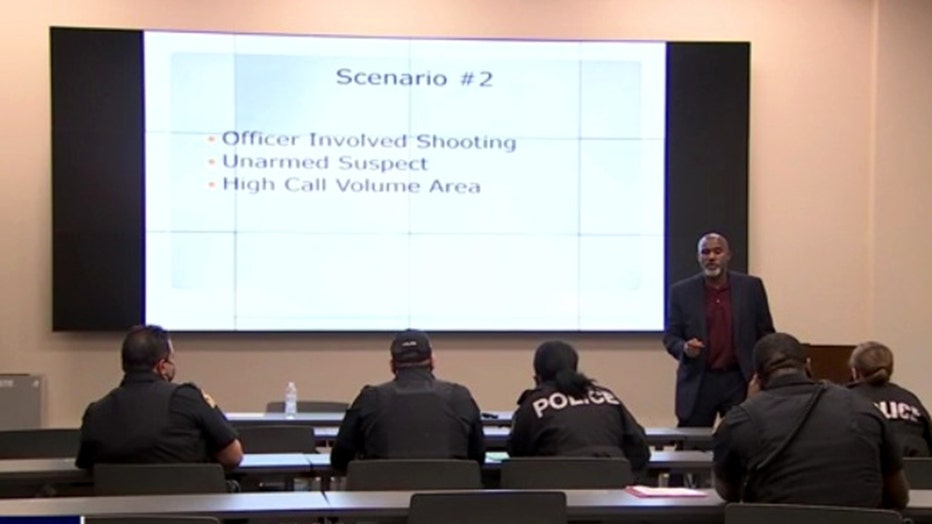'You're a community member. What do you want to see an officer do?': Workshops give officers new perspective
ST. PETERSBURG, Fla. - Building trust between law enforcement and the community takes continuous effort. Officers with the St. Petersburg Police Department are training this week to work on that relationship, and move from talk to action.
It is a comprehensive, all-day training, unlike the ones most officers have had in the past.
"The instructors came and he said, 'Take off the badge, put that aside, you're a community member. What do you want to see an officer do?'" recalled Sgt. Anthony Alli, of the District 3 Community Service Unit.
The department wants to strengthen its bond with the folks who live and work in the city, bringing in the Center for Law and Social Justice at Bethune Cookman University to run a series of workshops.
"I think Chief Holloway has done a nice job of engaging the community," said Dr. Randy Nelson, the director of the Center for Law and Social Justice. "But by the same token, you still have violence, you have pockets of violence in the community and folks don't feel safe in their community."

He says making the streets safer requires deliberate and intentional engagement between officers and the community. However, it needs to be a collaboration.
"Policing isn't something you do to a community, it has to be something you do with the community, and it takes a relationship just like a marriage, there's two-way accountability, a sacrifice that is needed and necessary," Nelson said.
The training at the department runs all week. In all, there will be six sessions with command staff and officers, and then the community gets involved. Those workshops with stakeholders and youths kick of this weekend and run the next three Saturdays.
The final training workshop will bring together residents, civic leaders and officers, sitting down to develop an action plan, a way to measure change and hold both sides accountable.
"You come back a year later and look, this is what we said we were going to do to improve relationship. This is what we said. We're going to improve safety. Where are we," explained Nelson.
That starts now by giving the officers who patrol the streets new ways to look at situations they encounter on the job, and encouraging them to consistently reach out to people.
"So taking that extra time and kind of getting involved and speaking with them as a person to person, that's definitely something that I think we're all going to take away from this," Alli said.


